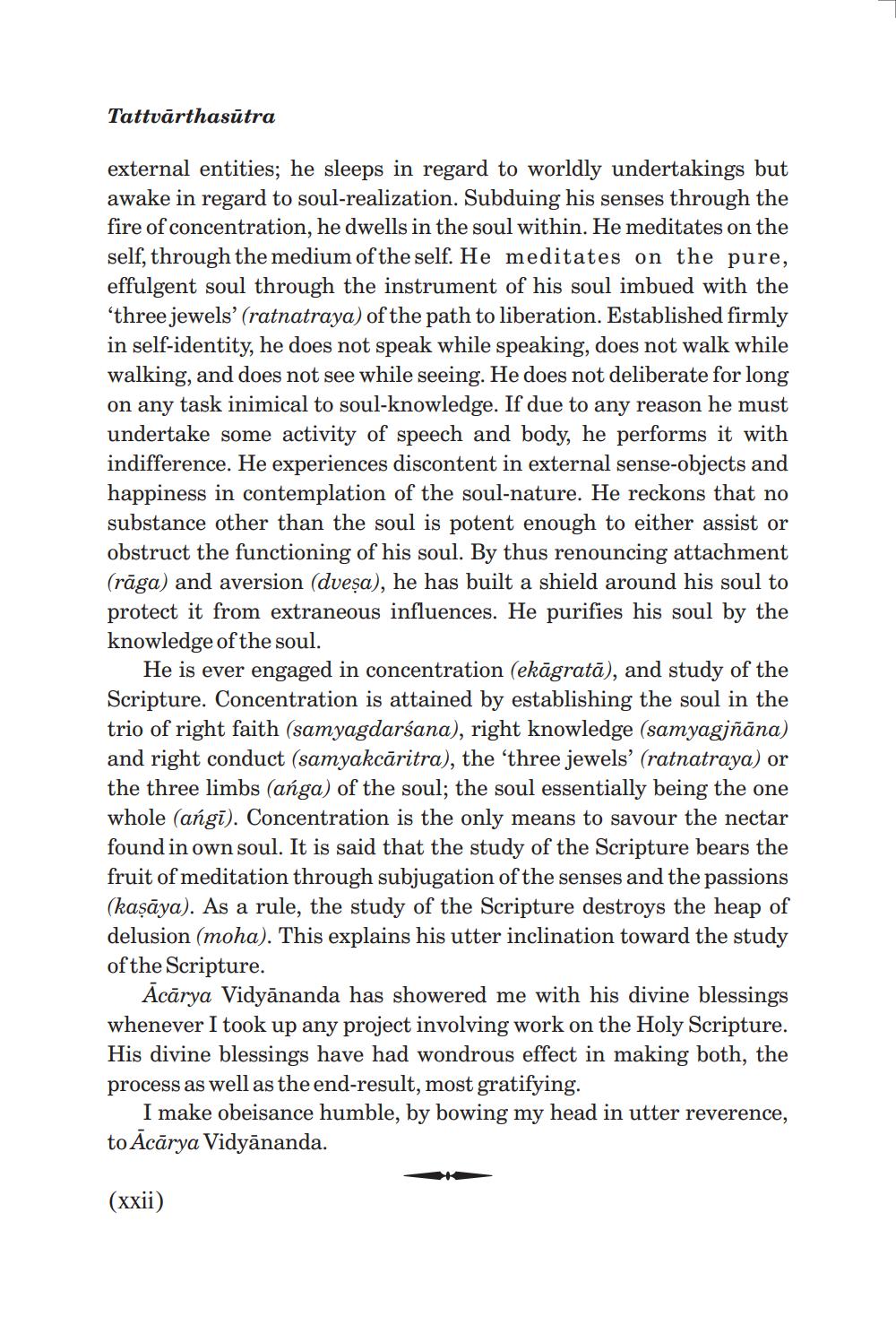________________
Tattvārthasūtra
external entities; he sleeps in regard to worldly undertakings but awake in regard to soul-realization. Subduing his senses through the fire of concentration, he dwells in the soul within. He meditates on the self, through the medium of the self. He meditates on the pure, effulgent soul through the instrument of his soul imbued with the 'three jewels' (ratnatraya) of the path to liberation. Established firmly in self-identity, he does not speak while speaking, does not walk while walking, and does not see while seeing. He does not deliberate for long on any task inimical to soul-knowledge. If due to any reason he must undertake some activity of speech and body, he performs it with indifference. He experiences discontent in external sense-objects and happiness in contemplation of the soul-nature. He reckons that no substance other than the soul is potent enough to either assist or obstruct the functioning of his soul. By thus renouncing attachment (rāga) and aversion (dveşa), he has built a shield around his soul to protect it from extraneous influences. He purifies his soul by the knowledge of the soul.
He is ever engaged in concentration (ekāgratā), and study of the Scripture. Concentration is attained by establishing the soul in the trio of right faith (samyagdarśana), right knowledge (samyagjñāna) and right conduct (samyakcăritra), the ‘three jewels' (ratnatraya) or the three limbs (anga) of the soul; the soul essentially being the one whole (angī). Concentration is the only means to savour the nectar found in own soul. It is said that the study of the Scripture bears the fruit of meditation through subjugation of the senses and the passions (kasaya). As a rule, the study of the Scripture destroys the heap of delusion (moha). This explains his utter inclination toward the study of the Scripture.
Ācārya Vidyānanda has showered me with his divine blessings whenever I took up any project involving work on the Holy Scripture. His divine blessings have had wondrous effect in making both, the process as well as the end-result, most gratifying.
I make obeisance humble, by bowing my head in utter reverence, to Acārya Vidyānanda.
(xxii)




